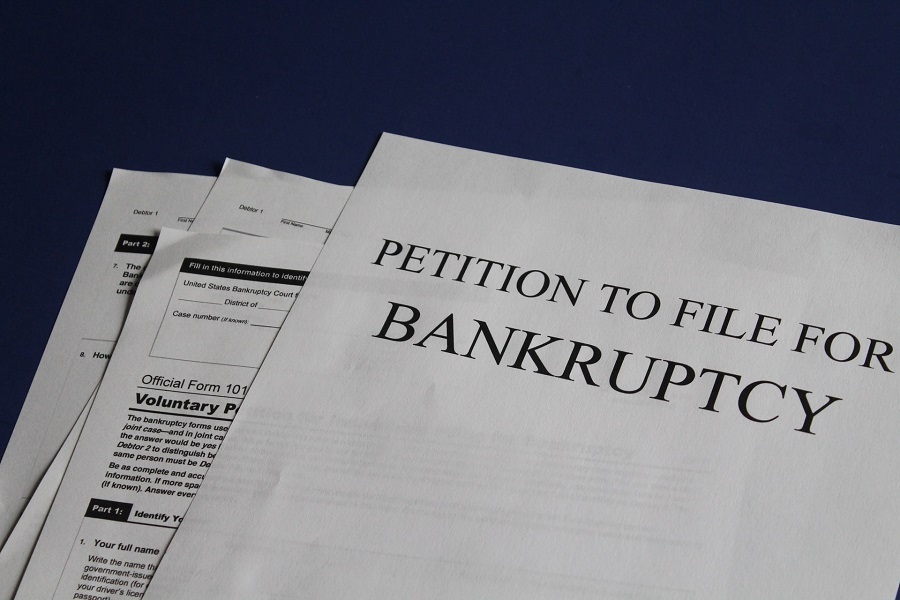If your debts are mounting up and it doesn’t look like you’ll ever be able to get on top of them, you should consider declaring bankruptcy.
Declaring bankruptcy gives you a chance to make a fresh start. It does come with some consequences, however, and most people have more than one option to consider.
The two main options you face when declaring bankruptcy is between choosing a Chapter 7 or Chapter 13 bankruptcy.
In this article, we’re looking at what the difference between Chapter 7 & Chapter 13 bankruptcy is, and which option may be best for you:
What Is Chapter 7 Bankruptcy?
A Chapter 7 bankruptcy is a type of bankruptcy that some people and business entities can opt for to clear some of their unsecured debts.
This form of bankruptcy aims to help individuals or business entities erase qualifying debts quickly. Often within 3-4 months.
The main advantage for most people choosing Chapter 7 is that you do not have to pay creditors back using a repayment plan.
Instead, a court appoints a trustee to sell all of your nonexempt property to pay off as much of your debt as possible. The drawback is that you’re going to lose a lot of property. You will also not have any way to catch up on missing payments.
This form of bankruptcy is best for low-income debtors or anyone with very few assets.
Qualifications for Chapter 7 Bankruptcy
Not everyone qualifies for a Chapter 7 bankruptcy, neither is it the best option for some people.
If you want to file this form of bankruptcy, some of the requirements dictate that you must:
- Not have filed for a Chapter 7 bankruptcy in the past eight years.
- Not have filed for a Chapter 13 bankruptcy in the past six years.
- Complete a counseling course from an approved agency within 180 days before you file for bankruptcy.
- Be an individual, married couple, or a small business owner.
- Pass a bankruptcy means test.
- Not have had a recent bankruptcy dismissal or discharge.
These are just some of the basic requirements. It’s still advisable you seek the advice of a bankruptcy lawyer before filing as meeting these requirements does not automatically qualify you.
Even if you’re eligible to file, a court could dismiss your case if it feels you are trying to defraud your creditors.

What Is a Chapter 13 Bankruptcy?
A Chapter 13 bankruptcy is a ‘reorganization’ bankruptcy. Unlike Chapter 7, this type of bankruptcy enables you to keep some of your assets.
When you file for a Chapter 13 bankruptcy, a court will put together a repayment plan to clear your debts. The amount you’ll have to pay is contingent on how much debt you have, your income, and the value of your property.
Chapter 13 bankruptcy requires the appointment of a trustee and a stable income. People typically opt for Chapter 13 to prevent liquidating all of their assets.
Qualifications for Chapter 13 Bankruptcy
Not everyone will qualify for a Chapter 13 bankruptcy. Although, someone who does not qualify for Chapter 7 bankruptcy will often be able to file for a Chapter 13.
If you want to file this form of bankruptcy, some of the requirements you need to meet include:
- You must not be a registered corporation or LLC.
- You must disclose your income and submit proof to the court within 14 days of filing.
- Your tax filings must be up to date.
- You have not had a previous bankruptcy case dismissed in the last 180 days.
- You must fulfill credit counseling requirements.
As with Chapter 7, it’s important you work with an experienced lawyer to ensure you meet all of the requirements and submit the correct paperwork to the court.
What Is The Difference Between Chapter 7 & 13 Bankruptcy?
There are some key differences between Chapter 7 and Chapter 13 bankruptcies. These are as follows:
Who is eligible? – Only individuals are eligible to file a Chapter 13. Individuals and some business entities can file a Chapter 7.
Eligibility restrictions – Individuals must have a low amount of disposable income and pass a Chapter Means Test to file for a Chapter 7 bankruptcy. This means some people must file a Chapter 13.
In addition to this, there is a limit to the unsecured debt someone can have when filing a Chapter 13.
Discharge duration – Chapter 7 bankruptcies usually resolve within 3-4 months. Chapter 13 bankruptcies involve payment plans that typically span 3-5 years.
Property – Chapter 7 resolutions involve selling all nonexempt property. With a Chapter 13 resolution, you can keep all of your property, but you have to pay unsecured creditors to the value of your nonexempt assets.
Benefits of Chapter 7 vs Chapter 13 Bankruptcy
Here is a look at the main benefits of both types of bankruptcy:
Chapter 7 – This type of bankruptcy enables you to quickly discharge qualifying debts and get a fresh start within months.
Chapter 13 – This type of bankruptcy allows you to keep your property and some other assets that may be important to you.
Most people will file for a Chapter 7 if they meet the requirements. However, if you want to keep your property you will want to consider a Chapter 13. The final decision is going to come down to your individual circumstances.
We’re Here to Help
If you live in Alabama and you cannot pay your debts, we’re here to help. At LaPlante, Merritt, Faulkner, Wilson & Clay, LLC, we have a number of lawyers experienced in handling bankruptcy cases.
We can help you determine if a Chapter 7 or a Chapter 13 is the best option for you. As well as talking you through your options and what to expect when filing for bankruptcy.
Call us at (256) 236-7354 to schedule a consultation and learn more about bankruptcy and how it can affect your life.

